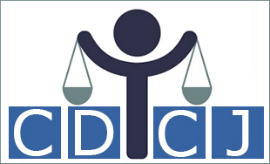Regardless of the size and complexity of the court or prosecution office, financial management systems should be able to show a relationship between the proposed expenditures and anticipated outcomes in a year covered by the budget. In other words, one should demonstrate who did what, when they did it, what were the outcomes and what or how much was involved.
The Functional Reviews conducted in 2018 under the first phase of the joint European Union/Council of Europe programme “Horizontal Facility for the Western Balkans and Turkey” indicated that the Montenegrin budget system scored poorly in terms of its capacity for effective resource allocation. The European Commission 2019 Report also outlined a need to improve internal financial control, stating that the accountability is limited by a primary focus on compliance, rather than on performance. To allow for more systematic presentation of objectives and performance indicators in the judiciary, two analyses have been produced and presented recently, reviewing national judicial performance frameworks and presenting good management practices in Austria, Netherlands, France and Germany.
Based on best European practices, a custom-made performance-based model has been developed, using links among court/prosecutions resources and number of solved cases to allow for better performance management and budgetary decision-making and execution. Statistical models for allocation of human and financial resources have been proposed to help prepare the Montenegrin judicial system for a transition from cost-based budgeting to case- flow demand model, leading to better internal control and better audit results. As such, the analyses are seen as an important tool for implementing Public Internal Financial Control promoted by the EU under acquis Chapter 32 (Financial control).
The analyses have been produced within the action “Accountability and professionalism of the judicial system in Montenegro”, which is a part of the joint European Union and Council of Europe Programme “Horizontal Facility for the Western Balkans and Turkey 2019-2022”, implemented by the Council of Europe.
Also available in Montengrin from their website



